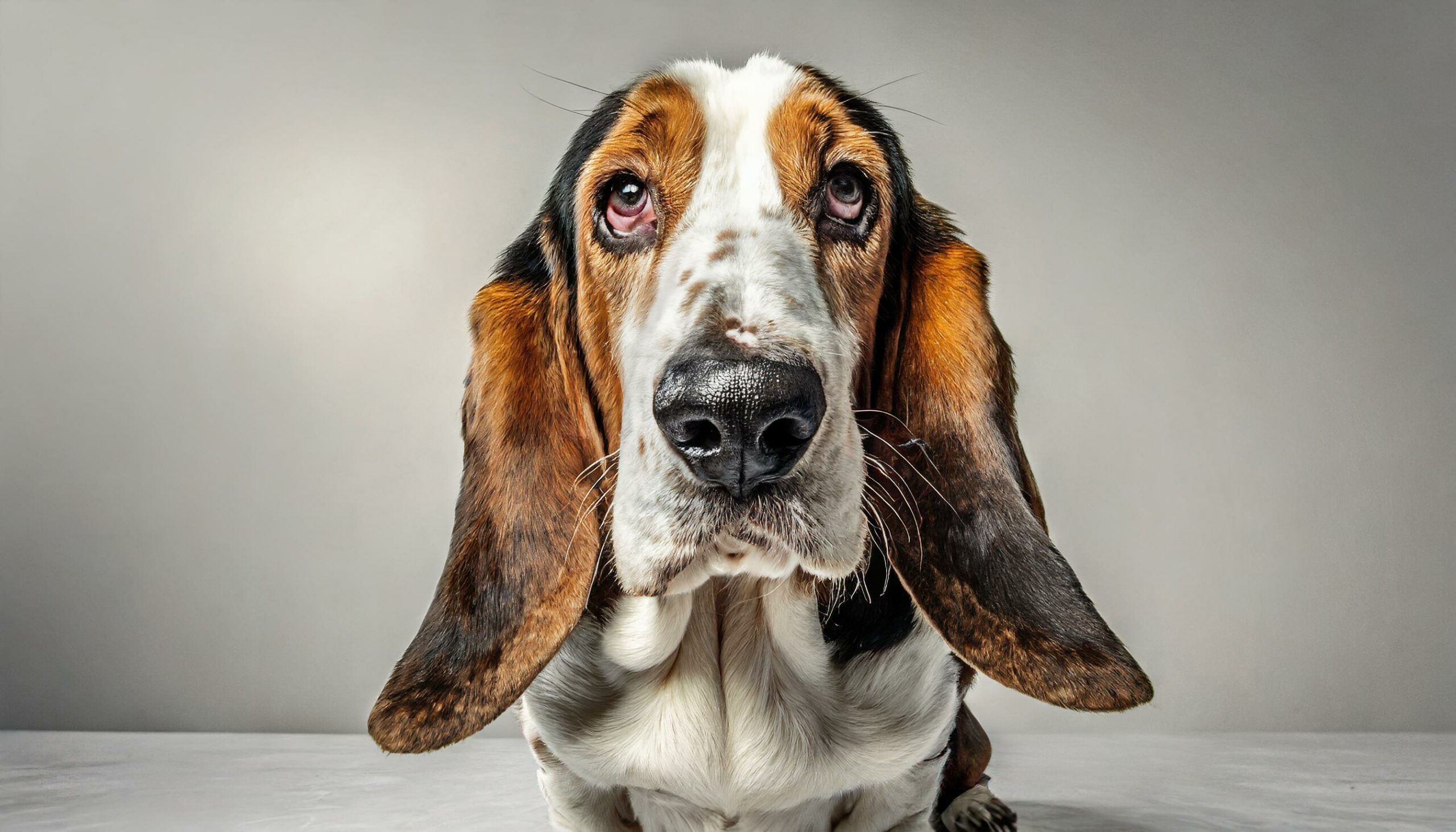The Basset Hound, with its distinctive long ears, droopy eyes, and short legs, is one of the most recognizable dog breeds in the world. Renowned for its gentle disposition and its somewhat melancholy yet endearing expression, the Basset Hound has captured the hearts of many as a beloved family pet. This breed’s history, physical characteristics, temperament, care requirements, and compatibility with families are rich and fascinating, revealing why the Basset Hound is more than just a dog with a distinctive appearance.
Origins and History
The Basset Hound’s origins can be traced back to France, where its ancestors were bred for hunting small game, such as rabbits and hare, by scent. The name “Basset” comes from the French word “bas,” meaning low, referring to the breed’s short, stocky stature. This physical trait allowed hunters to follow the dogs on foot through dense underbrush and woodland. Brought to England and America in the 19th century, the Basset Hound quickly transitioned from a skilled hunting dog to a beloved companion, thanks to its amiable nature and unique appearance.
Physical Characteristics
Basset Hounds are immediately recognized for their long, velvety ears, sad-looking eyes, and short legs that contribute to their distinctive, low-to-the-ground silhouette. They possess a dense, short coat that can come in a variety of colors, including tri-color (tan, black, and white), lemon, and red and white. Despite their somewhat cumbersome appearance, Basset Hounds are capable of impressive endurance and agility over short distances. They typically weigh between 40 to 65 pounds, making them a medium-sized breed with a heavy bone structure and a notable muscular build, especially in the hindquarters.
Temperament and Behavior
Basset Hounds are known for their calm and friendly disposition, making them excellent companions for families with children and other pets. They are inherently social, enjoying the company of humans and dogs alike, and often display a clownish sense of humor that endears them to their owners. However, their hunting heritage gives them a strong sense of independence and a powerful nose, leading them to follow scents with relentless determination. This trait can sometimes make them seem stubborn, especially during training sessions.
Care and Health
The Basset Hound’s coat is low maintenance, requiring regular brushing to minimize shedding and occasional baths to keep them clean. Their long ears need special attention to prevent infections, with regular cleaning and monitoring for signs of irritation or disease. Like many breeds, Basset Hounds are prone to certain health issues, including obesity, ear infections, and joint problems such as hip dysplasia. A balanced diet and regular exercise are crucial for maintaining their health and well-being.
Training and Socialization
Early socialization and consistent, gentle training are important for Basset Hounds. They respond best to positive reinforcement techniques, such as treats and praise, rather than harsh corrections. Training may require patience, as their strong-willed nature and tendency to be easily distracted by scents can make them challenging pupils. Nevertheless, Basset Hounds can learn a wide range of commands and behaviors, contributing to their adaptability as both companion animals and participants in canine sports like tracking and obedience.
The Basset Hound in the Family
Basset Hounds make wonderful family pets, thanks to their gentle nature and tolerance for children and other animals. Their laid-back demeanor makes them well-suited for both active families and more sedentary households. However, potential owners should be prepared for their vocalizations, including baying and howling, which are part of their charm but may require consideration in certain living environments. With proper care, training, and lots of love, Basset Hounds can be loyal, affectionate members of the family, offering companionship and joy to their human counterparts.
In conclusion, the Basset Hound, with its unique appearance, amiable personality, and rich history, is a breed that offers much more than meets the eye. As a hunting companion turned family pet, the Basset Hound exemplifies the adaptability and enduring appeal of dogs as companions to humans, making it a cherished breed among dog lovers around the world.
